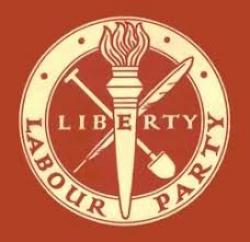By Andy Ford, Unite member
The Labour Party is currently inviting submissions from Constituency Labour Parties to the National Policy Forum (NPF) with a closure date of June 30th. The subject areas this year are: local accountability in a national education service, democratic public ownership, sustainable food policy, rebuilding the NHS, local economic development, Brexit, building an effective criminal justice system and rebuilding a just social security system.
But what is the NPF, how does it work, and is it fit for purpose? Can it be used by the left as it was once used by the right?
The NPF must be one of New Labour’s worst inventions, afflicting the Labour Party with an opaque and unwieldy process, with direct democracy so diluted as to be almost non-existent. The NPF replaced a proper policy-making conference and that is what we should go back to. I have a particular problem with the NPF, as it consistently wrote NHS privatisation into Labour policy for over 10 years.
Chapter 5 of Liz Davies’ book Through the Looking Glass: A dissenter in New Labour, explains just what a defective and undemocratic set up it is.
Closed sessions and no minutes taken
There are 175 delegates on the NPF, but less than half, 72, are elected by Labour Party members. Thirty are appointed by the affiliated unions, the vast majority being senior full-time officials. Another nine come indirectly from the local councillors, and seven are selected from socialist societies, with two more from the Co-op party. Fifteen are MPs and MEPs and another eight are shadow cabinet members. The NEC members are also automatically delegates. So there is a degree of ‘double representation’ where people elected to one position also get to be elected or selected for a higher body. There is also great over-representation of paid officials of the movement, in other words, those who are only very indirectly accountable to the members who they supposedly represent.
The NPF meets in closed session and visitors and media are excluded. There are no minutes, just summary reports issued by Millbank. Draft policies are produced by Millbank and issued to CLPs who are allowed to consider one topic. In practice few do so. When they do hold an event no votes are taken and no motions tabled but the notes of a facilitator are sent to Millbank for inclusion (or not) in a brief for a Policy Commission.
Each policy area is overseen by one of nine Policy Commissions which meet in private whenever the minister or shadow minister wants to convene it. Liz Davies jokes that her commission met “Whenever Frank Dobson had a spare half hour”. No minutes are ever circulated. Each commission has nine members – three appointed each by the unions, the NEC and from the NPF, the latter three being – one union official, one CLP person and one MP.
Joint Policy commissions
The Commissions pool their output into one Joint Policy Commission which meets ad hoc in Downing Street or in the Shadow leader’s office and includes the leader and deputy and eight from the NEC and just three from the NPF. The Joint Policy Commission can modify the policy documents to create nine documents, each of which has to be voted on as a whole by the next NPF.
The one chink in the armour is that if a significant minority (25%, in theory: 35 delegates) of the NPF supports an alternative policy, it has to go to conference to decide between the majority report and an alternative minority position. Key issues are left unmentioned in the draft policy documents – the hope being that no-one will notice. You need nine delegates to raise an amendment with a view to getting a minority position. If an amendment is proposed it may be accepted or not by the minister/shadow minister. If he/she does not accept it, the lead amender has to meet the with his/her advisers (about ten more people) to decide whether to rewrite, withdraw, or insist on going to the NPF plenary on Sunday morning for a vote, to see if the amendment has a significant minority in support.
The delegate with the amendment is only allowed to take one person with them, to argue with minister/shadow minister and their special advisors, all professional politicians, and in the days of New Labour at least, many were veterans of student politics stitch-ups. One delegate heading up an amendment had to endure four hours of argument with the New Labour minister and their advisors, and Liz Davies had two hours.
Trade Union leaders colluded with New Labour policies
In the case she describes – an amendment linking pensions with earnings – after two hours of fruitless argument with the minister, and insisting on going to a vote, on the Sunday morning plenary she found that all the union delegates had been pressured to vote down her amendment in return for unspecified secret back-room deals, and she only got 12 votes, well short of the 25% threshold required.
Incidentally, Liz Davies’ testimony illustrates an often over-looked point – that Blairite policies were only possible with the tolerance or collusion of the union leaders. They could have got earnings linked to pensions as Labour policy at any time at the NPF, and they could have blocked NHS privatisation too.
If it all sounds illogical and convoluted, it is, and it is quite intentional. It is particularly designed to allow union officials to vote against their own union policies as decided by democratic conferences of their lay members.
In the survival of the NPF we see Corbyn and the left trying to task over and use the machinery the Blairites left behind. The NPF should be abolished and why Jeremy Corbyn has not done already so is a complete mystery. Let us return to an open, democratic policy-making conference.
April 1, 2019



